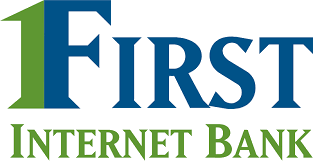Best Small Business Savings Accounts
If your business has a lot of money saved up for future expenses, leaving the cash in your business checking account may not be the best way to maximize it. The good news is that there are several solid high-yield business savings accounts that are worth considering.
How to Choose the Best Small Business Savings Account
Business bank accounts are as varied as businesses themselves. No two businesses are exactly alike, and of course different business owners will have different long term goals and different preferences when it comes to banking. What works for a food truck might not be the best fit for a woodworking shop.
If your business deals with a lot of cash, for example, if you take cash payments, then you might run into trouble using an online-only bank, regardless of its competitive interest rates. On the flip side, if your business is based online,a digital bank account might be able to meet your needs and provide convenience.
And of course, while interest rates are a huge factor, you can’t forget to look at eligibility requirements as well as available account tiers. If you don’t expect your business to hit a high enough minimum deposit to waive monthly maintenance fees, then an account might not be worth it, even if it has a higher-than-average APY.
When looking for any new account, you’ll always want to consider the bank’s other financial products, such as checking accounts, loans, credit cards, investment options and more. If you find a bank that has products to fit multiple of your financial needs – and fits projected needs down the line – then you’ll save yourself the hassle of having to juggle multiple accounts.
Small Business Savings Account FAQs
As we researched the best business savings accounts, we came across several questions from small business owners about the banking process and experience.
-
Most banks offer insurance through the Federal Deposit Insurance Corporation (FDIC). This protection means that your balance, up to a certain amount, is guaranteed in the event that the bank fails. In general, you’ll get $250,000 in FDIC insurance per bank, per depositor, per ownership category.
So if you have $250,000 at one bank and $250,000 at another, you’re insured for up to $500,000. The same principle applies if you have two accounts with the same bank, for example a personal account and one you share with your business partner.
If you opt to bank through a credit union, you’ll likely be provided with similar protection. Credit unions are generally protected through the National Credit Union Association (NCUA), also for $250,000 per bank, per depositor and per ownership category.
As you search for business bank accounts, make sure they’re either FDIC-insured or NCUA-insured.
-
For obvious reasons, banks don’t offer many of the same features on checking accounts – like overdraft protection – for their saving accounts. We’ve covered just about all the features you need to keep an eye out for above.
That said, if you’re also looking at getting a small business checking account, then definitely be on the lookout for various fees, especially fees for overdrafts or monthly maintenance. And, as with shopping for any product, make sure to look at customer feedback and concerns regarding the banking experience through reviews. It’s also important to check out whether you’ll get perks with your debit card, the number of free transactions you have and more.
And don’t forget about ATMs.Does the account have a huge network through Allpoint or MoneyPass, or does it restrict you to certain ATMs in a local area?
You might also want to get an account with a bank that suits your needs for credit cards, loans and other financial products, so you don’t have to have multiple accounts with different financial institutions.
-
Some banks that offer high-yield savings accounts for small businesses also offer business credit cards. If you’re interested in a business credit card, consider the following benefits:
– Division of business and personal expenses.
– Relatively affordable financing when you’re just starting out and don’t yet qualify for traditional business loans.
– Building a line of business credit distinct from your personal credit.
– Getting some additional time to pay your vendors — in fact, some business credit cards offer an introductory 0% APR, so you could theoretically take months to pay off a balance interest-free.
– Potentially earning rewards and taking advantage of other perks.However, as with a personal credit card, using a business credit card regularly can get you in trouble if you start using it to purchase things your company can’t afford to pay back.
And keep in mind, you must agree to a personal guarantee with most of these cards. This means that if your business can’t repay the debt, then your personal assets are on the hook.. If you can’t pay it back, it could wreck your credit.
If you’re considering a business credit card, most of the best options come from major banks like American Express, Chase, Bank of America and Citi.
As with any important financial and business decision, it’s worth taking your time and comparing multiple options. That’s the only surefire way to find the one that works best for you and your business.





